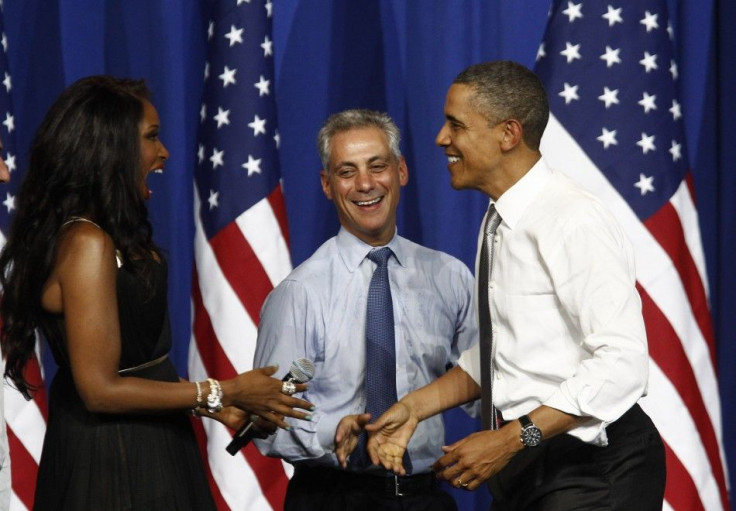Happy Birthday President Obama: How Do You Plan to Fix the Economy?

On the day President Barack Obama celebrated turning 50, America's poor economic conditions gave him a present he'd like to forget.
As Obama celebrated turning 50, with plans for a Thursday night party with family and friends, paid for at his own expense, Wall Street shed 4.31 percent on the Dow, 5.08 percent on the Nasdaq and 4.78 on the S&P 500 on economic worries.
Also, some economists began to talk seriously about the very real chance the U.S. might slip into a double-dip recession.
Although they suggest another recession would be mild compared to the Great Recession of 2008, the odds of a double-dip have suddenly increased, according to the calculations of some experts.
The weak economy, of course, poses the greatest threat to Obama's re-election bid for a second term in office since historically second terms don't come easy when economic conditions .
Decliners beat advancers on Wall Street Thursday by a count of 14 to one on the New York Stock Exchange, and investors fled stocks on the major markets, pushing money toward to safety of cash amid the uncertainty.
"People are throwing in the towel because they can't find relief on any front. There are a lot of worries about the economy," said Milton Ezrati, market stragist at Lord Abbett Co. in Jersey City, New Jersey, in an interview with Reuters.
Another economic expert said Thursday in a note to clients the U.S. economy is just "one shock" away from a double-dip recession. The economist at Bank of America's Merrill Lynch said the economy is "very fragile" and that odds of the U.S. entering another recession are placed at 35 percent.
"It would take a modest worsening in financial conditions, falling oil prices and rising unemployment. None of these are extreme scenarios," said Bank of America Merrill Lynch economist Michelle Meyer in a note to clients. "We argue that after a series of sucker punches earlier this year, the economy is only one shock away from falling into recession."
She notes, however, the recession, if it occurred, would likely be mild compared to the Great Recession the U.S. emerged from two years ago.
But even if America doesn't fall into a double-dip recession, conditions will "still feel like a recession to many."
"The economy has already been hit by a series of sucker punches earlier, this year including the jump in oil prices from the Middle East crisis, the collapse in auto production from the Japanese tsunami, and the confidence hit from the fiscal crisis in Europe and the U.S.," Meyer wrote.
Because the economy remains vulnerable because of key sectors that haven't recovered from the 2008 recession including family finances, housing and banking, just one more "shock" is all it would take to send the U.S. into a double-dip recession, Meyer said.
Concerns over the economy emerged on the President's birthday as a topic of utmost concern.
One year ago, the threat of the U.S. falling back into a double-dip recession seemed slim. Obama talked last year about the "summer of recovery." But it didn't happen. And this summer, conditions are worsening fast, as growth has stalled and the jobless rate remains high.
White House spokesman Jay Carney was hit with an array of questions on the President's birthday about what Obama planned to do differently to turn the American economy in a different direction.
"(Obama) is working very closely with his senior economic advisors to come up with new proposals to help advance growth and job creation," said Jay Carney, White House spokesman. "He is working with members of Congress to help advance growth and job creation. And he will continue to do that."
© Copyright IBTimes 2025. All rights reserved.





















